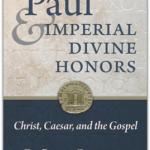Blogotional did a great job of bringing together my call for us to learn from any corner we can with pyromaniacs concerns about the decline of the concept of evangelical as in any way useful as a definition.
One of the things that Phil and I spoke of minutes before the first london bombers was what we termed an evangelical war over doctrine which was being fought by theological ‘terrorists’. Up till now I havent wanted to share that term as recent events made it seem inappropriate. Imagine my surprise when I heard the real terrorists described today on the BBC as using ’emergent’ techniqes! (I dont think we should read too much into that……!)
If recent events have taught us anything it is that ideas matter. Truth is vital when you are a copper trying to decide in seconds if the man you are about to shoot dead really is a terrorist or instead a well-wrapped Brazillian electrician who doesnt realise that this is about as warm as summer ever gets over here.
It also matters to terrorists who wouldnt do what they do unless they believed certain beliefs.
When we spoke about evangelical terrorism, we didnt mean to imply that there was any real similarity between evangelicals who I have sometimes tongue-in-cheek called “neo-liberals” What we meant was that the very eddifice of evangelicalism is under attack from many different quarters and in a non-organised way. Sadly, many of those attacking the eddifice are probably genuine, and do not realise that they are endangering the very concept of evangelicalism. I trust that by the time you have finished reading the rest of this post you will understand the seriousness of the batttle for truth we face
In the church, our enemy is never flesh and blood. The battle for truth happens on many fronts. Rather than an organised war, what we find is a preacher here and a theologian there attacking a single facet of our wonderful gospel whilst claiming that they want to keep every other doctrine intact. The men and women who are doing this are usually totally unaware that taken together with all the others attacking different aspects of the truth from within evangelicalism there is next to nothing left that isnt under attack!
This idea is never more clear than in the penal substitution debate. An attempt was made to bring together proponents of penal substitutionary atonement and men like Steve Chalke who oppose it in a symposium, the results of which were announced today in a press statement.
Attempts to learn from both sides of a debate like this have to be welcome. At first sight it might seem that the conclusions of this symposium would also be welcome to me. They werent.
Joel Edwards said “…we welcome the fact that both Steve Chalke and Alan Mann affirmed their willingness to continue creative engagement with penal substitutionary atonement, and to work alongside its proponents in the cause of the gospel. In the spirit of the symposium, we hope that others will continue to listen to their concerns.”
Suddenly, it seems that we are all one big happy family willing to work alongside each other for the sake of the gospel. The trouble is without a penal substitution I cannot see how there is much of a gospel to work together for. Meanwhile, on the other side of the fence, others say that the gospel that I and many others preach amounts to nothing more than a theory of “cosmic child abuse”. It simply cannot be the case that both sides are right. One or other group of people are not evangelical, and it is interesting that this quote made me feel that we are so on the back foot that it almost sounded like it was those who hold to penal subsitution that were being considered for ejection from the EA!
I would love to engage some bloggers in an analysis of the papers that have came out of the EA. Thus far I have only had time to read the press statement, the programme (note that spelling my US readers!) and the first paper by I. Howard Marshall
I am eager that we dissect this paper and the rest of these papers one by one as only bloggers can do. Lets take them apart in order on as many Christian blogs as possible. Here are links to the other papers so you can really get your teeth stuck into them.
- Romans 3.25-26: An Exegetical Study Simon Gathercole
- Atonement in the Old Testament – Chris Wright
- Steve Motyer The Atonement in Hebrews
Why Did Christ Die? Sue Groom- Penal Substitution on the Myth of Redemptive Violence Stuart Murray Williams
- Questions on The Lost Message of Jesus
I was gratified to read in the Marshall paper a defense of penal substitution but felt it lacked something by way of rigour and passion. Where is pyromaniac when you need him? Anyway, a couple of highlights from the paper were as follows-
..this compilation of the evidence leads to three significant conclusions:
1. There is a clear framework of thought in the NT which assumes a background of the future action of God against evildoers, an action of judgment in which God displays his wrath against sin and carries out judgment involving the destruction or death of sinners.
2. There is no other kind of future scenario or description of the attitude and actions of God. This is not one type of metaphorical description among others. And there is no indication of a universalism in which all are saved and none are ultimately condemned.
3. This teaching is more than just a background of thought. It becomes thematic on many occasions, and it lies at the centre of the evangelism of the early church in that salvation is conceived of as being deliverance from the consequences of sin and specifically from death and the wrath of God. Consequently, we cannot push it to one side as being less important than the other aspects of human sin and need………
The charge of cosmic child abuse is totally misplaced. It fails to recognise the points that have just been made which emphasise that it was God who initiated the cross, it was God himself
who suffered on the cross and bore the sin of the world. A parent who puts herself into the breach and dies to save her child from a burning house is considered praiseworthy. The God who suffers and dies in the person of Jesus for human sin belongs in the same category. It is true that the concept of God the Son suffering and dying is paradoxical and incomprehensible, and we have to recognise that fact, but that is what Scripture says. It is part of the mystery of the incarnation.
Salvation is available to sinful human beings through the death of Christ that involves him in bearing the consequences of sin. These consequences constitute the penalty due to sin, rightly called a penalty because it is painful and deprives the sinner of life with God and all its blessings. In this way the holy and loving God upholds righteousness through judging sinners and saving those who accept what he has done in his Son on their behalf and instead of them. It is not a case of God being angry with Christ but of God himself in Christ taking on himself the sin and its penalty. Indeed, at some point the challenge needs to be issued: where are these evangelicals who say that God was angry with Christ? Name them! Where is the evangelical who will repudiate this statement: We do not, however, insinuate that God was ever hostile to him or angry with him, written by John Calvin? You will not find them among serious theologians, although I recognise that popular preachers may err in this respect.
In other words “you better believe judgement is coming and if Jesus isnt the one who will save you from the wrath of God then there is nobody else gonna do it”
I will leave the last words of this post, but not this debate to a member of my family. One of my children was asked by my wife “Some people say that Jesus died for us but that he wasnt punished for our sins- what do you think of that?” “Thats stupid,” my young child said “because he did.”
















